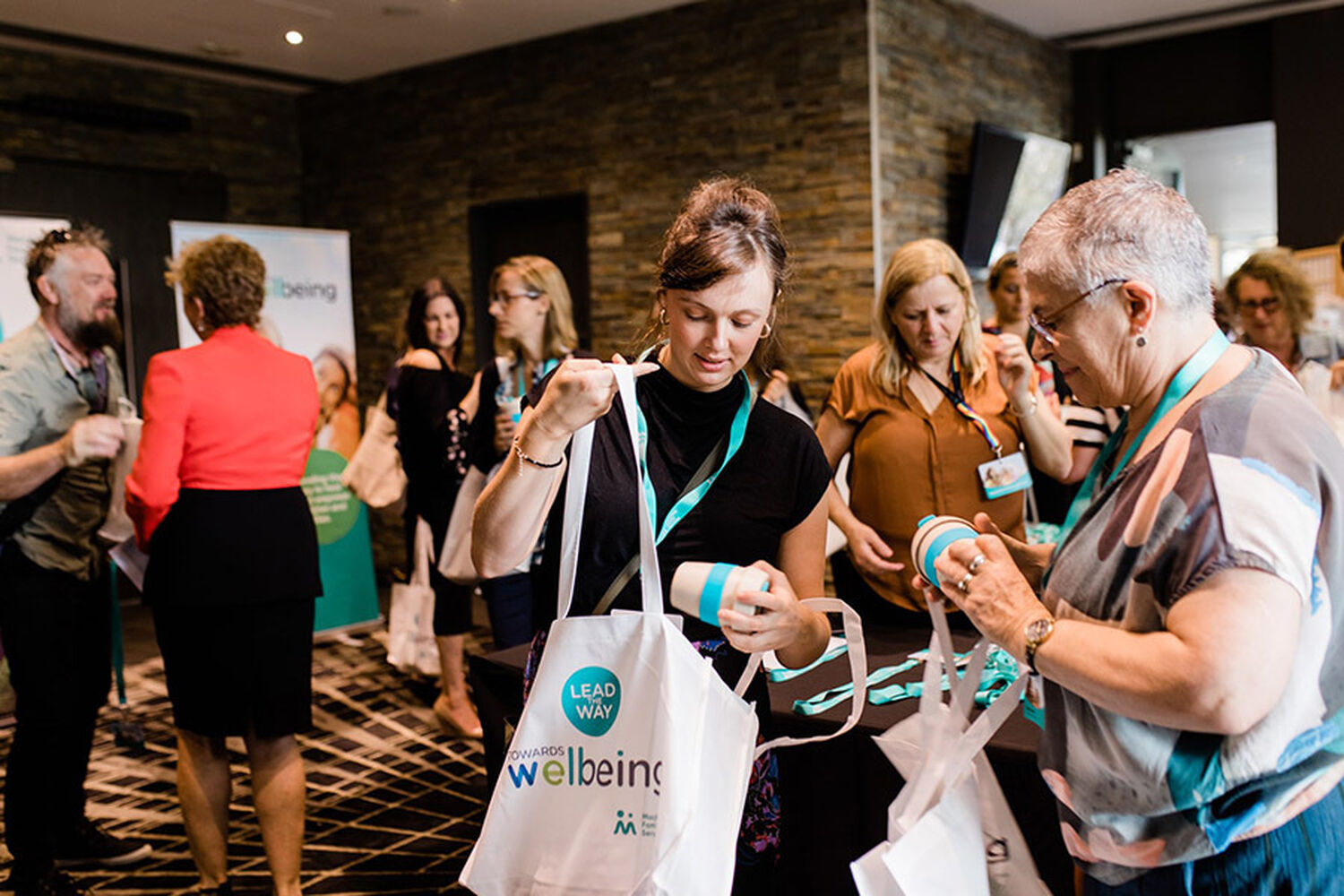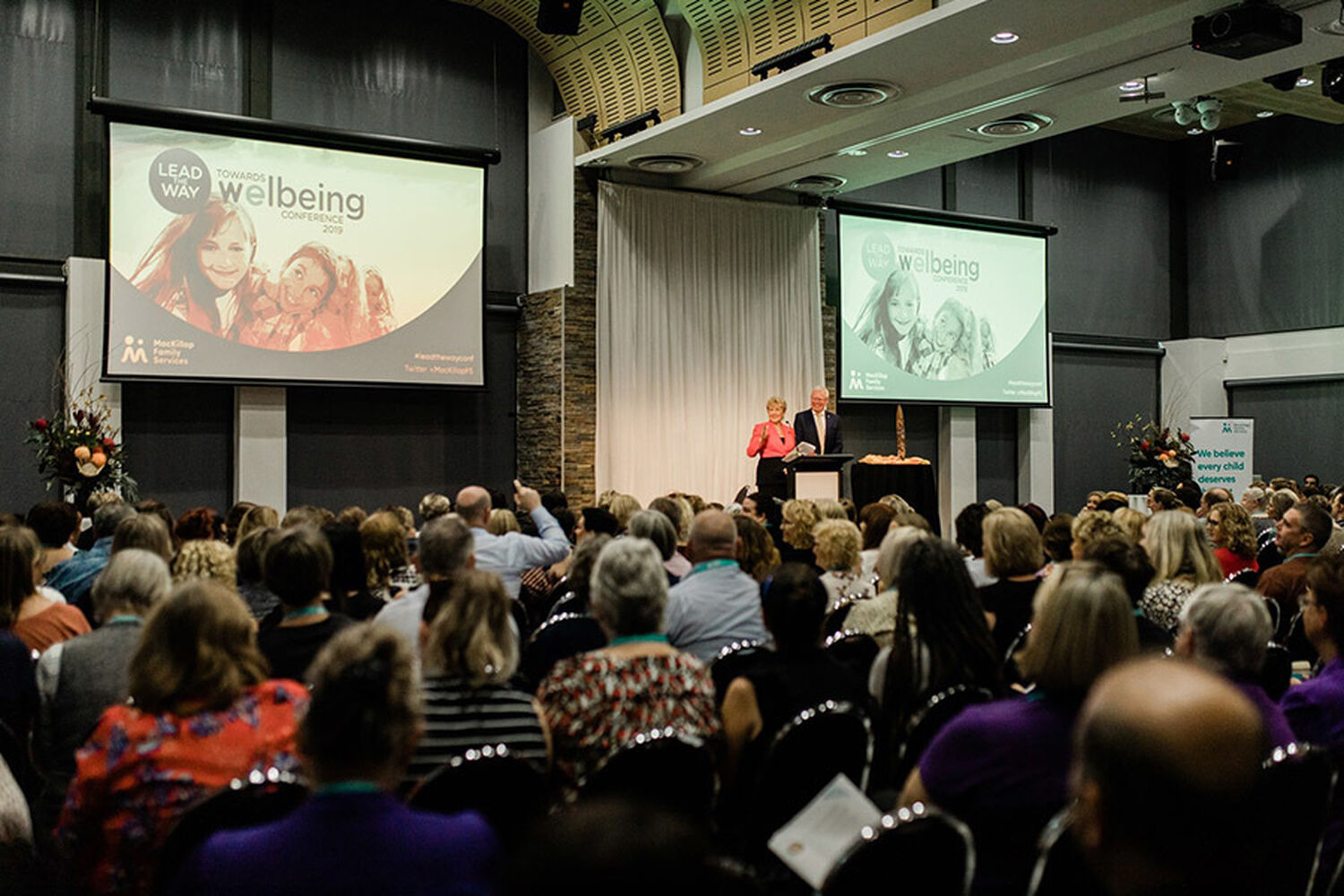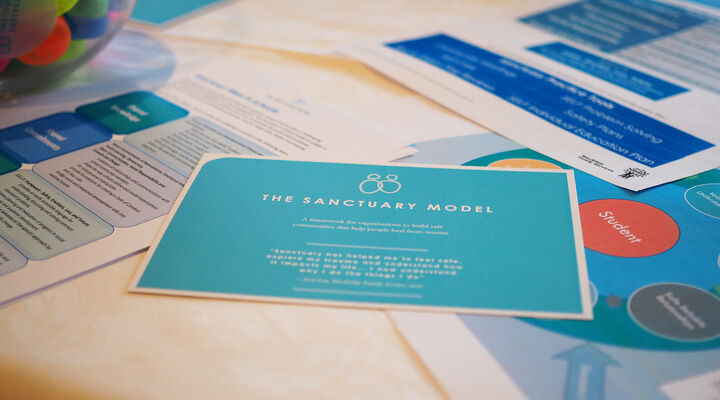On October 31 and November 1, MacKillop Family Services hosted the Lead the Way Towards Wellbeing conference in Sydney. MacKillop Family Services hosted the conference as part of our commitment to empowering children, young people and families to heal from adversity.
“The conference was a celebration of collaborating across sectors, providing an opportunity for knowledge sharing and promoting the critical importance for us all to have a deep understanding of trauma and its impact on the families and children we support, and the staff who support them,” said Dr Robyn Miller, CEO of MacKillop Family Services.
The conference was officially opened by the the Honourable Gareth Ward MP, Minister for Families and Communities and Minister for Disability Services. He shared his vision for all government agencies and community service organisations to work together to support vulnerable families.
The earlier we can intervene, the better the outcomes we can achieve, and the stronger our communities will be.
The first keynote speaker of the two days Associate Professor Sandra Bloom shared the importance of a whole-of-organisation understanding of trauma to support children, young people, families and staff. She encouraged participants to think of organisations as living organisms – entities, like humans, that can be injured and can heal.
Throughout the two days we listened to professionals with expertise in grief and trauma and childhood studies and those with lived experiences. The insights shared by the keynotes were discussed in panel discussions across the two days with complimentary presentations in four workshops streams. The workshops hosted organisations working with children, young people and families that have experienced loss, grief and trauma. They shared the outcomes of strategies, evidence-based practices and trauma-informed models adopted in their services and schools to support the healing and learning of the children and young people in their care.
Associate Professor in Counselling and Counselling Psychology at the University of Queensland Judith Murray, shared her research on supporting people who have experienced loss, grief and suffering, referring to the impacts of grief and trauma as ‘the awful tug of war’. She reiterated the common theme throughout the conference of collaborating when supporting children, young people and families.
“Suffering is the width of the gap between 'what is' and ‘what is desired’. We are all working to reduce that gap. None of us can do it alone, we can only do it together. That's why integrated support is so important,” she said.
Building on Sandra Bloom’s theme of a whole-of-organisation approach to trauma, educationalist and justice advocate, Brendan Murray shared his experience of implementing Sanctuary, a trauma-informed model and ReLATE, a whole-of-school model, in Australian schools to support students to heal and learn.
We also heard from Professor of Childhood Studies and Founding Director of the Centre for Children and Young People Professor Anne Graham, AO. Anne shared her deep understanding and research working with children and young people who have experienced adversity and loss. The insights provided by children are critical to understanding how we can improve our services and support them to heal. Moving beyond listening, Anne said services supporting children need to provide meaningful opportunities for them to participate and feedback on how their participation improves policy and services.
The remaining keynotes, Isaiah Dawe, Allan Sparkes, CV, OAM and Rosie Batty, OAM shared their personal experiences of loss and trauma and reiterated how we must implement changes in our approach and services to be deeply meaningful and facilitate healing.
“People are always told to just ‘speak up’ if they need help, but those experiencing mental health can’t,” said Allan, former Deputy Commissioner of the Mental Health Commission of New South Wales.
He continued to share profound insights, stating that articulating his symptoms would be admitting he was feeling them.
“That was the last thing I wanted,” he said.
The importance of putting a language to trauma symptoms in order to heal was reiterated by Isaiah Dawe, who grew up in state care and is now the founder of the first Aboriginal mentoring company to support Aboriginal young people in out of home care in New South Wales.
“I couldn’t speak it out, so I acted it out,” he said.
Isaiah was one voice of many throughout the conference that stressed the importance of connection to culture to facilitate healing.
“If you take care of culture, culture will take care of you,” he said.
I feel a completeness in heart and spirit when I’m connected to culture. You can’t put a price on that.
Rosie Batty, OAM and Tash Anderson, a former child in care advocating for change in the child protection system, shared their desires for change and stressed the importance of truly listening to those with lived experience.
“We can fix the issues in our society if we address them with our children,” Rosie said.
“You never leave the little boy or girl you were. We all need to feel heard, understood and acknowledged,” she said.
The conference could not have happened without the diligent and unwavering commitment from the MacKillop Seasons team (formerly known as Good Grief) from the day of conception, to the final farewell. Thank you to the team and the support from a number of others from the Melbourne MacKillop team for running a wonderful conference, with everything running smoothly across both days.







